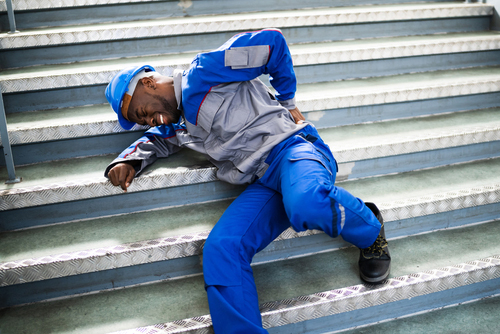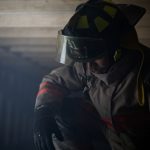Slippery Situations: Proving Liability in Your Slip and Fall Case
Slip and falls accidents are a common occurrence that can help anywhere but while they are common, they can often result in serious injuries. Under Florida premises liability law, if you have been injured in a slip and fall accident on someone’s property you may be entitled to compensation.
While property owners in Florida do have a duty to maintain their property in safe condition, proving liability in slip and fall cases can be complex. Since injury victims are required to prove that the property owner was negligent in order to get any compensation. This process often involves thorough investigation and legal expertise to establish fault. While it can seem daunting, getting the compensation you deserve is not impossible.
The Four Elements of Negligence
Four elements of neglect must be proven to prevail on a premises liability claim. Under Florida Law, you must establish:
1. Duty of Care: it must be proven that the at-fault party had a legal obligation to keep their land or business free from known hazards.
- Public invitees, business invitees and invited licensees are owed the highest duty of care because they were permitted on the property. Uninvited licensees and trespassers are owed a lower duty of care since they were not permitted on the property.
2. Breach of Duty of Care: it must be proven that the liable party’s actions breached the duty of care. Common breaches include:
- Insufficient warning of unsafe conditions
- Inadequate maintenance
- Poor lighting
- Loose hand railings
- Patchy, loose, or lifted carpet
- Unlevel ground
- Wet walkways or wet floors
- Allowing too many people into the space
- Unclear pathways
- Not advising visitors about the presence of aggressive animals
3. Causation: it must be proven that the at-fault party’s breach of duty caused you to suffer injuries. This can be proven with medical records, eyewitness testimonies, or any other expert opinions.
4. Damages: this is the actual injury and financial distress that you incurred due to negligence. In addition to any physical injuries, damages include medical expenses, lost wages, pain and suffering, emotional distress, and other losses or harms. The injured party will need to provide documentation verifying all damages.

Proving Causation
Documentation is essential in slip and fall cases as it provides crucial evidence of the incident. All relevant and accurate documentation helps establish the circumstances surrounding the accident and the extent of the victim’s injuries, which is essential for legal proceedings. The most common pieces of evidence that are used to prove negligence can include:
- Police reports
- Accident and injury reports
- Medical records
- Physical data, accident debris, or photographs of the accident site
- Photographs of the injuries
- Surveillance footage
- Accident reconstruction reports
- Any eyewitness testimony
- Expert testimony
- Bills, pay records, and other proof of losses
Trip vs. Slip vs. Step and Fall
There are three main variations of falls that can result from negligence which will play a role in proving causation and that the at-fault party breached duty of care. First is trip and fall being when an uneven, unstable surface or object in the path causes an individual to trip, resulting in injury. Second, slip and fall is when the floor or surface is slippery causing an individual to lose their balance or an object on the floor causes them to lose their balance, resulting in injury. Third is step and fall is when a hole or unexpected low place in the path causes an individual to fall over resulting in injury.
Seeking Compensation
In Florida, the statute of limitations for a slip and fall is two years after the incident. So, it is important to gather all needed documentation and evidence and get the claim filed immediately. Once filed and causation and breach of duty are proven, the injured party can seek compensation for economic and non-economic damages such as:
- Medical expenses: if you sought medical treatment for an injury because of the slip and fall accident, you can recover all current and future costs for medical care and treatment related to the injury. This compensation can include ambulances, emergency treatments, hospital stays, doctor visits, medical procedures, physical therapy, prescription drugs, and long-term care services.
- Lost income: if you missed work because of the accident, you could get compensated for lost earnings, benefits, bonuses, tips, and other earnings. Suppose you suffered a permanent or disabling injury and can no longer perform the job in the same capacity or at all. In that case, you can seek compensation for lost earning capabilities also.
- Pain and suffering: this non-economic damage compensation is for intangible losses that impact on your emotional and physical health. This damage can look like physical and chronic pain, loss of mobility, scarring, disfigurement, and mental, and emotional distress. As well as mental suffering like insomnia, depression, and anxiety. Pain and suffering can be anything that dramatically reduces the quality of life.
- Wrongful death: these are filed by the loved ones of those killed in the accident, so they can take action to recover damage on behalf of the estate and surviving beneficiaries. Families can get compensation for medical bills, funeral and burial expenses, lost income, loss of deceased’s support, services, and companionship, and any mental pain and suffering.
Do not Face it Alone
If you or a loved one were involved in a slip and fall accident and need help proving liability, contacting The Law Offices of Bram J. Gechtman can provide the expertise and support you need. With our experience in personal injury law, we can help you navigate the extensive legal process and secure the compensation you deserve.




